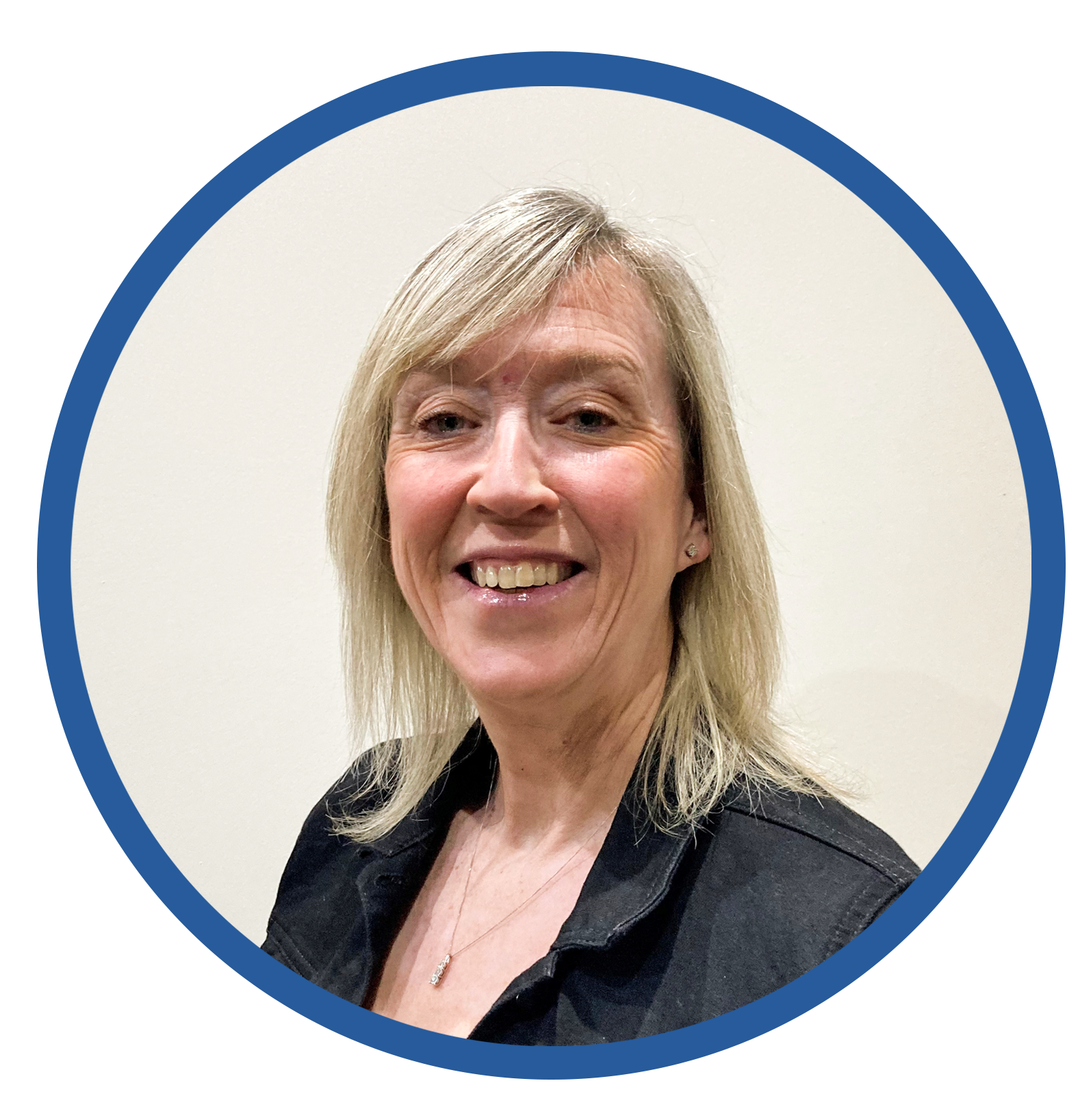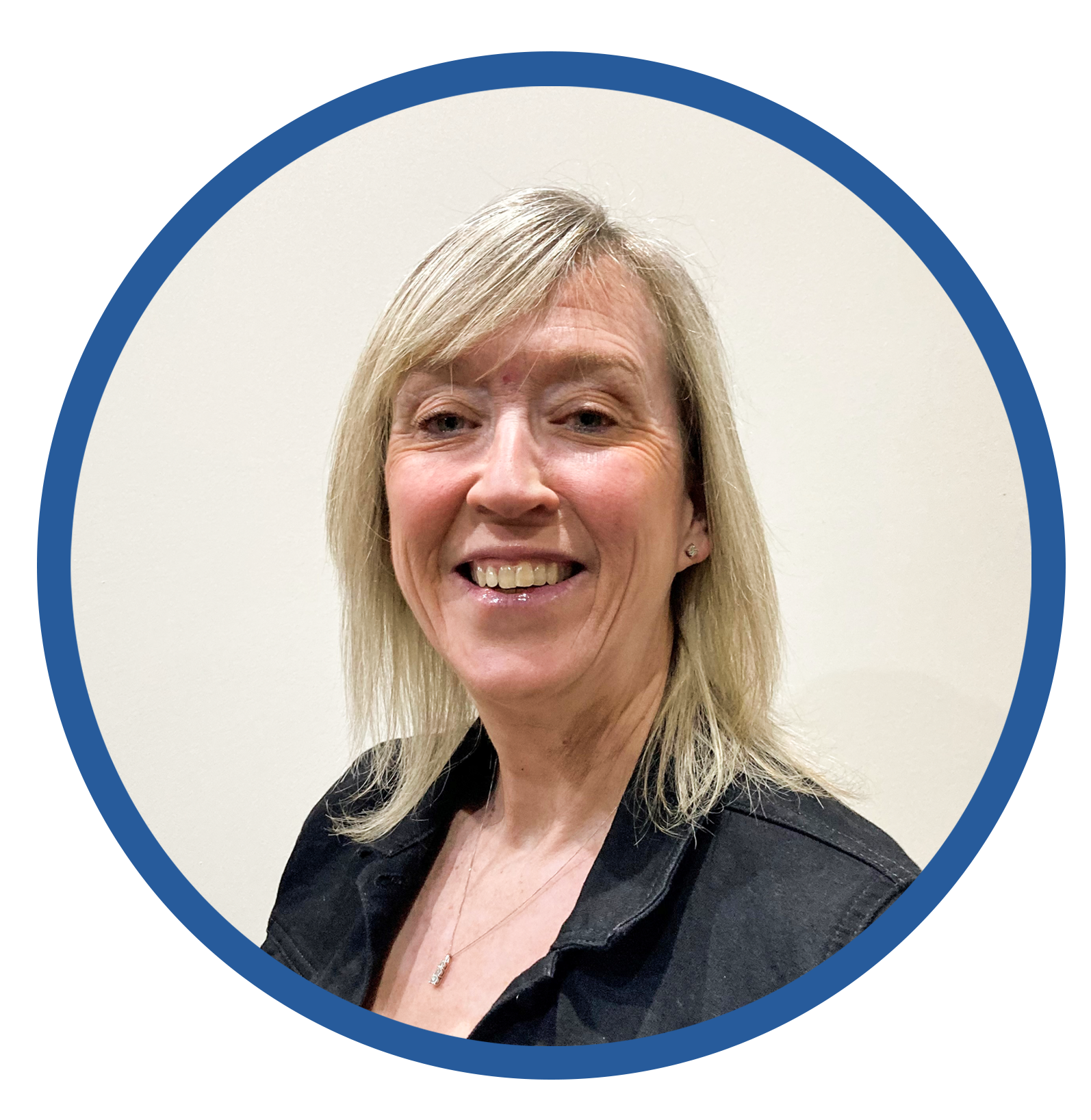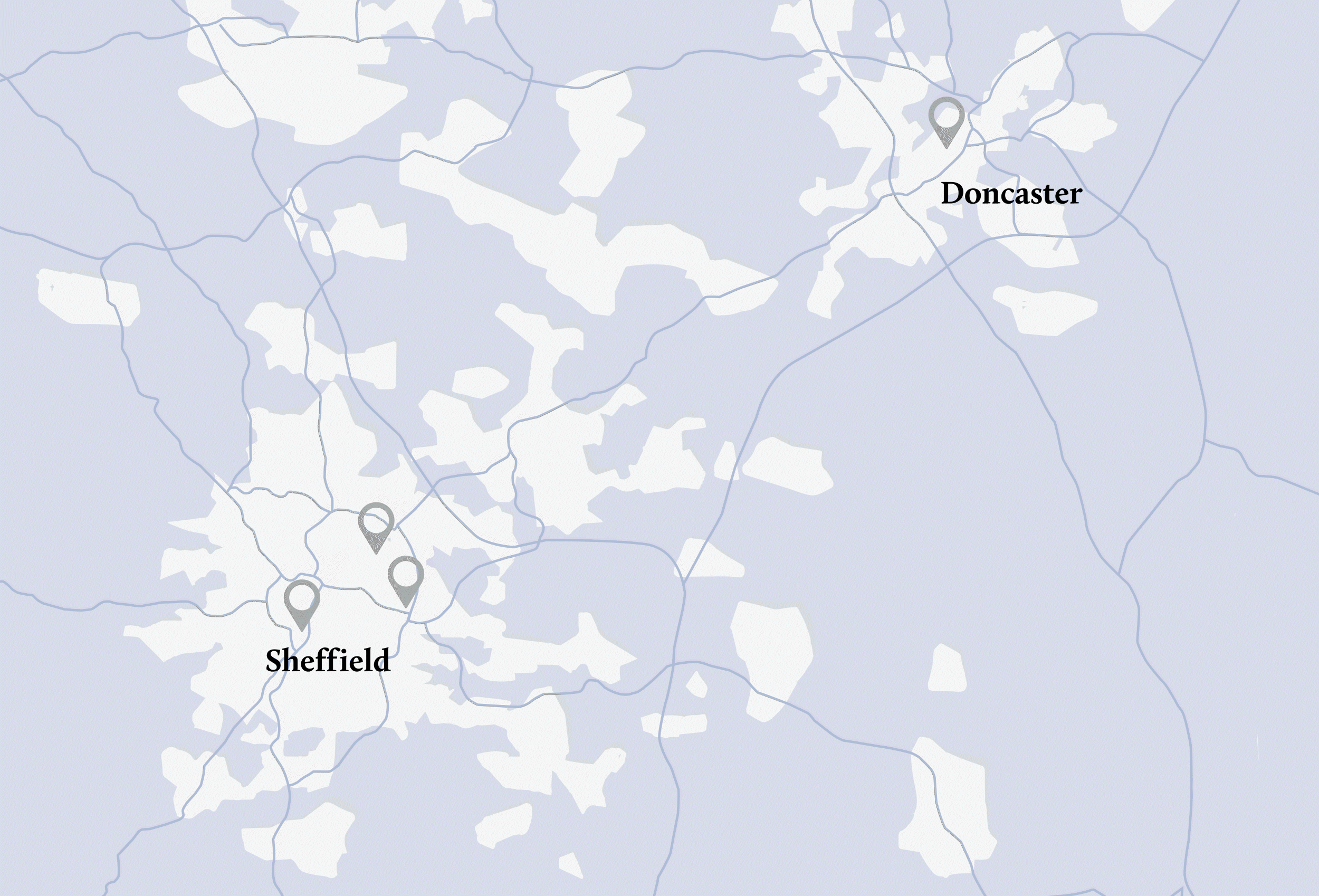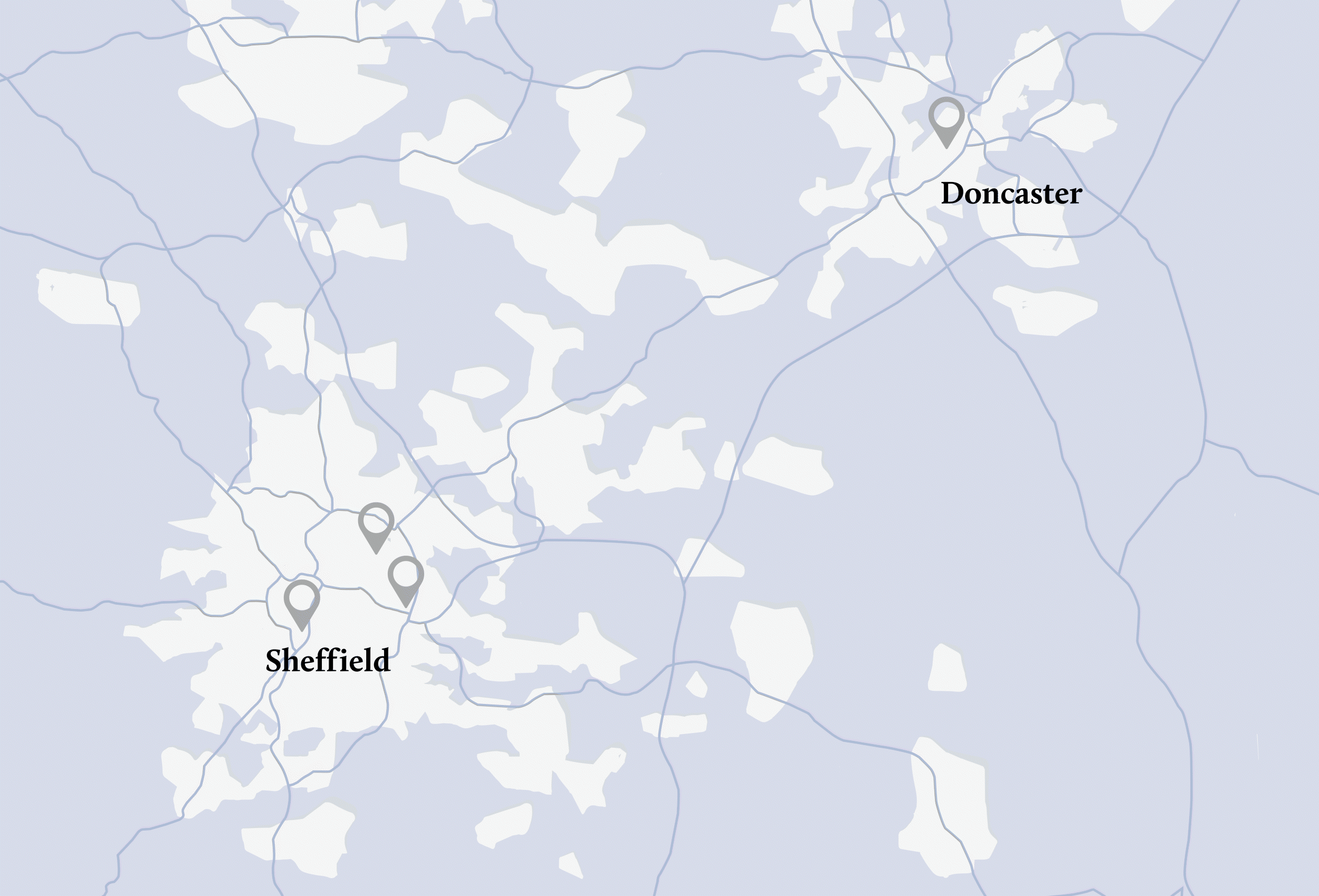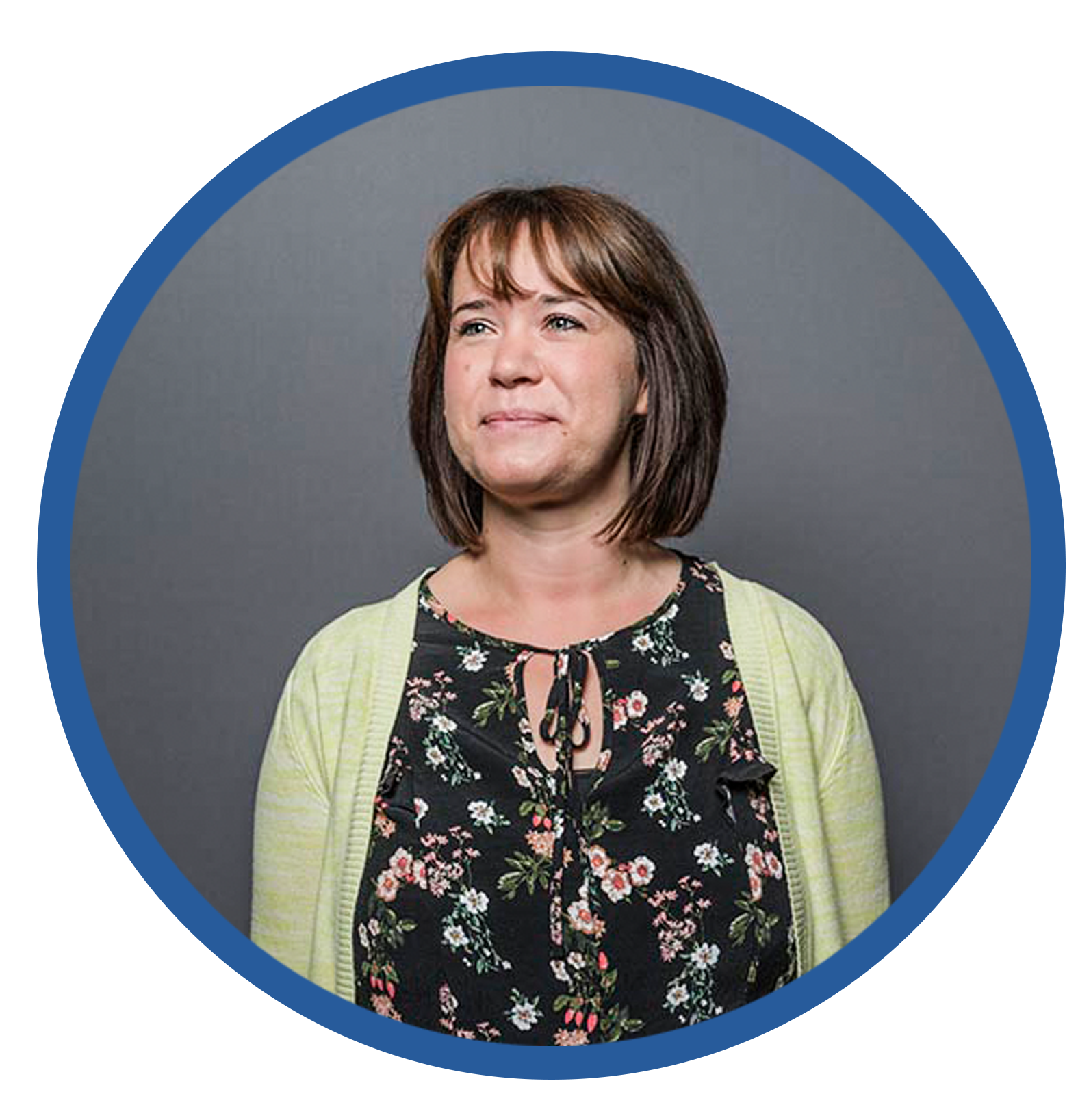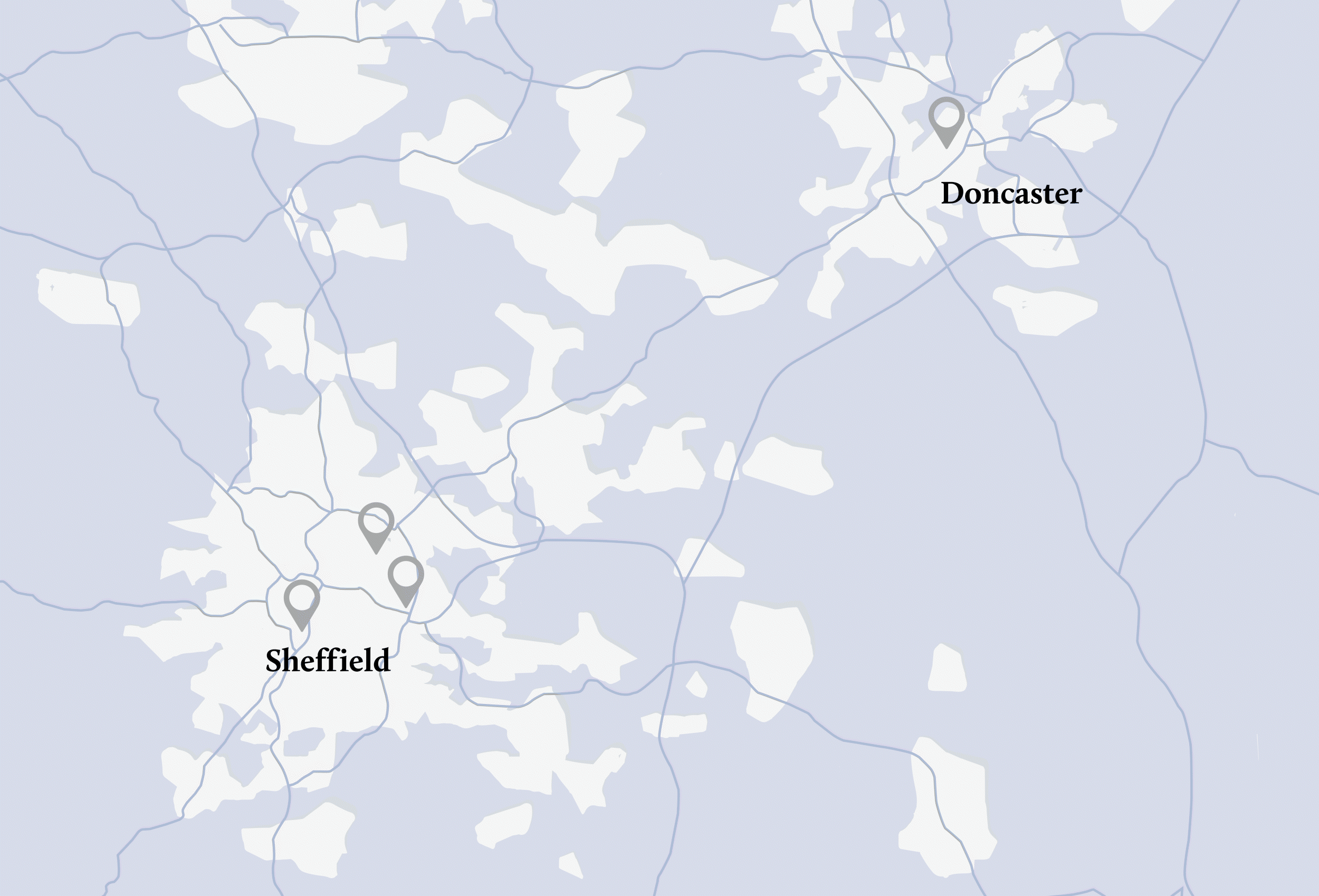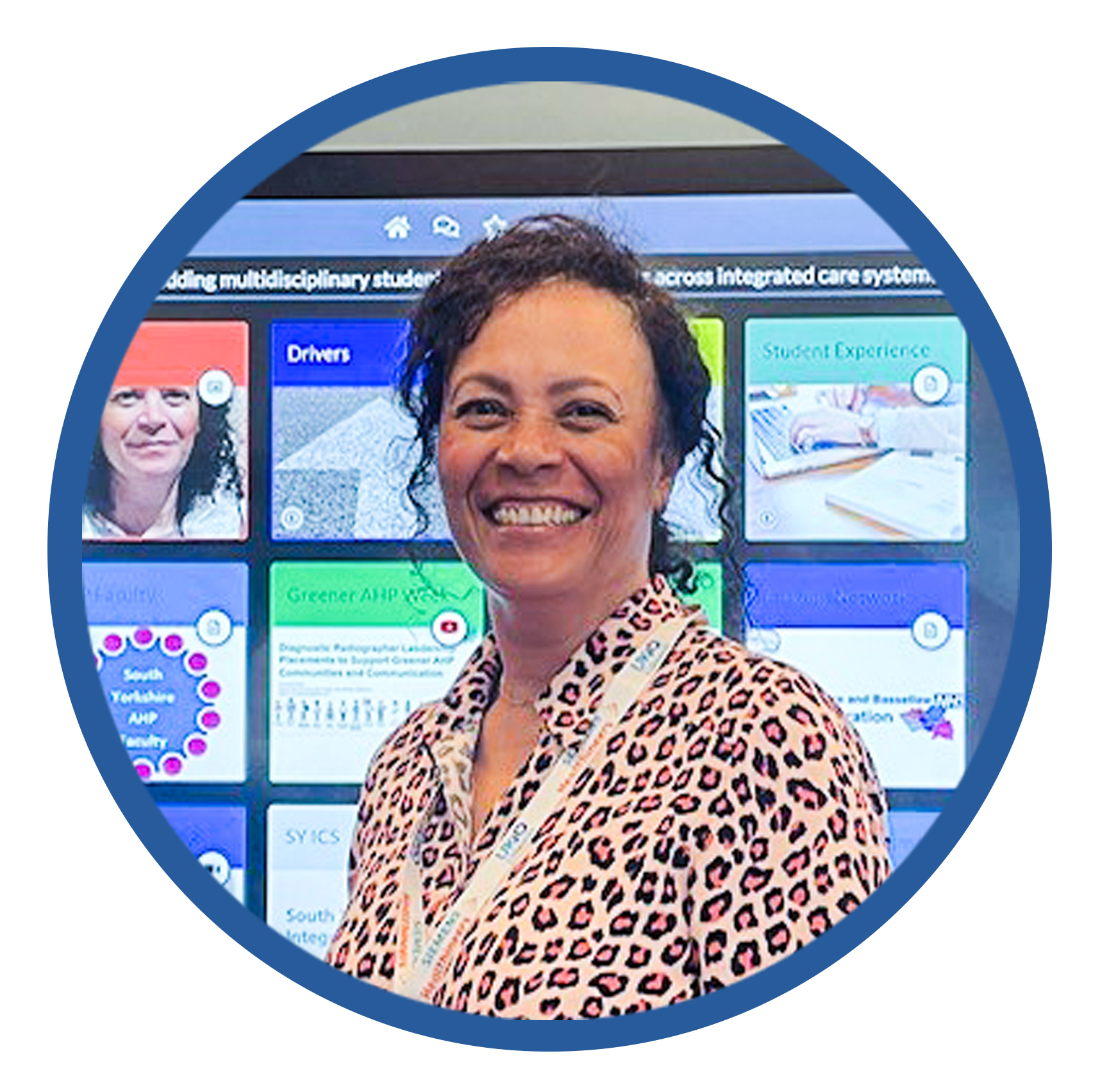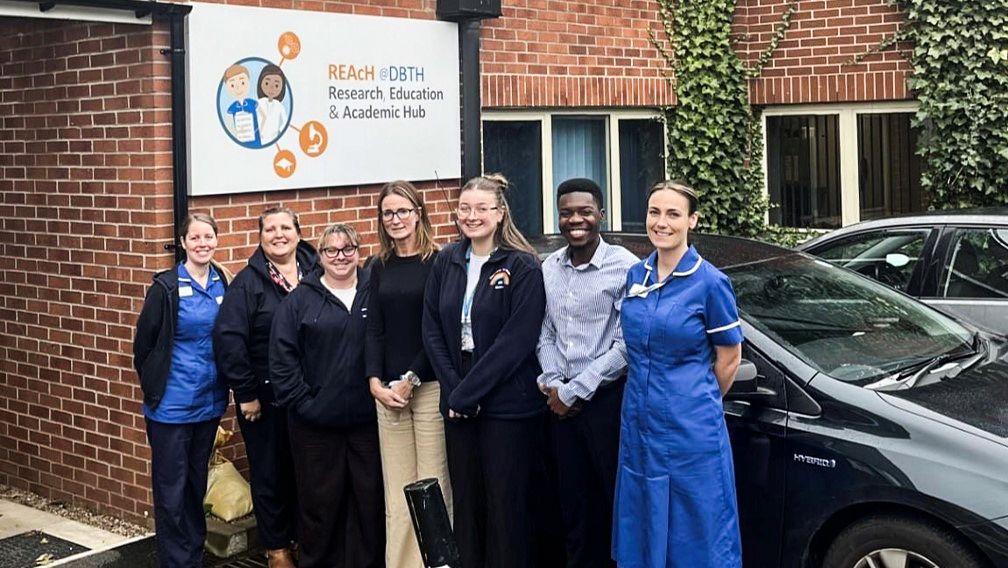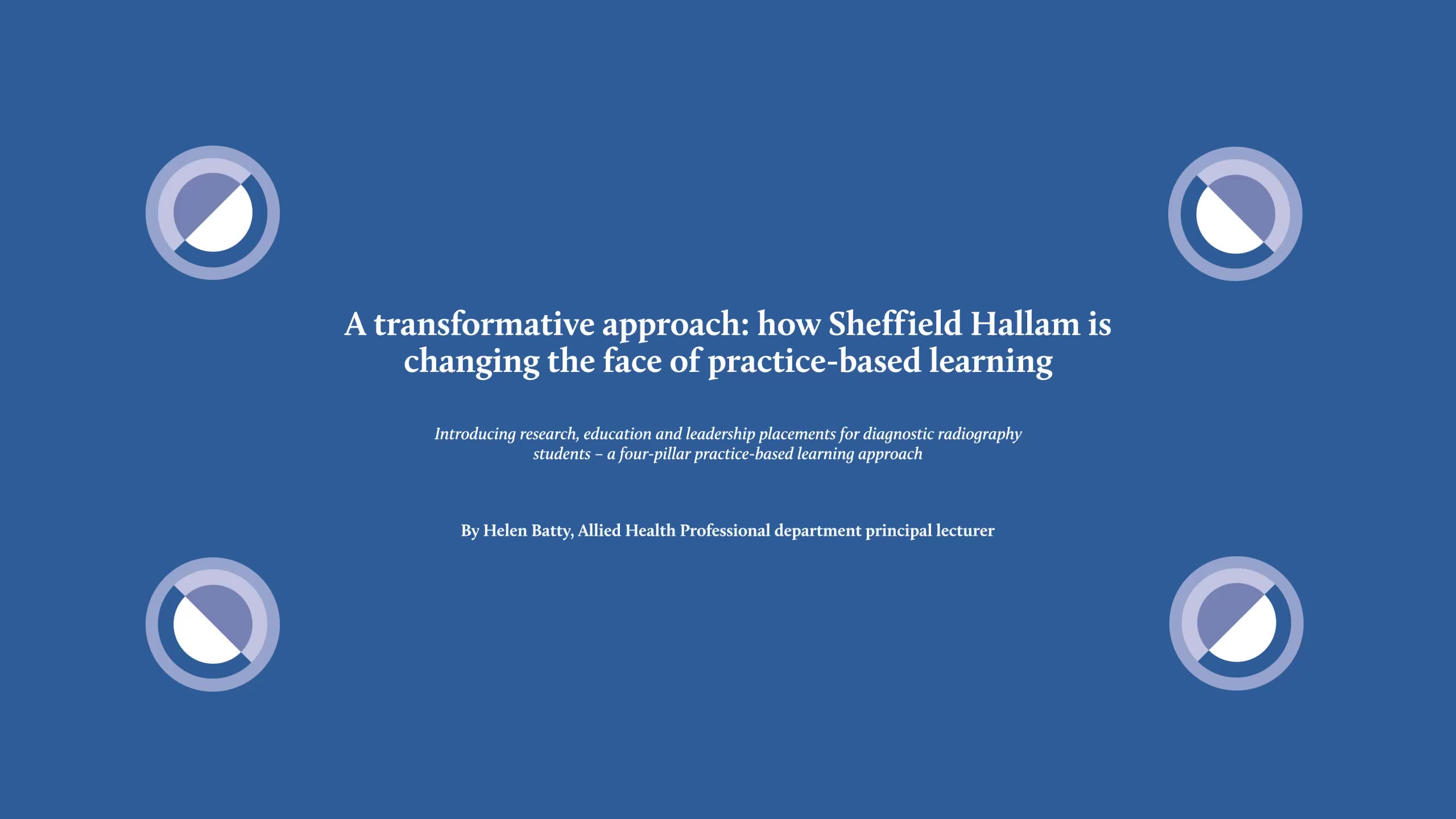
Helen Batty
Helen Batty
Sheffield Hallam University has implemented a transformative approach to practice-based learning (PBL) for its BSc Diagnostic Radiography students. PBL has traditionally focused on the clinical pillar but national strategies advocate for integration of the four pillars of practice including research, education and leadership. The Society of Radiographers has endorsed recently published PBL guidelines, which include PBL across all pillars at all levels (CSP & RCOT 2023). Despite this call for change, embedding all four pillars within PBL in pre-registration curricula remains a challenge.
The four pillars of practice
The four pillars of practice
Sheffield Hallam has introduced a four-week PBL experience in research, education or leadership for their final year BSc Radiography cohort. This innovative model not only enhances students' skills but also delivers impactful projects for service delivery. With support from practice partners, including senior leaders and researchers, students have embraced diverse opportunities, recognising the value of the development of a range of skills applicable to their future clinical practice and employability. This approach means diagnostic radiography graduates will have the knowledge, skills and resilience to deliver best practice, apply research to practice, lead and manage change, educate the future workforce and champion the ongoing progression of our profession.
Here are the key placements now on offer:
Helen Batty
Helen Batty
Sheffield Hallam University has implemented a transformative approach to practice-based learning (PBL) for its BSc Diagnostic Radiography students. PBL has traditionally focused on the clinical pillar but national strategies advocate for integration of the four pillars of practice including research, education and leadership. The Society of Radiographers has endorsed recently published PBL guidelines, which include PBL across all pillars at all levels (CSP & RCOT 2023). Despite this call for change, embedding all four pillars within PBL in pre-registration curricula remains a challenge.
The four pillars of practice
The four pillars of practice
Sheffield Hallam has introduced a four-week PBL experience in research, education or leadership for their final year BSc Radiography cohort. This innovative model not only enhances students' skills but also delivers impactful projects for service delivery. With support from practice partners, including senior leaders and researchers, students have embraced diverse opportunities, recognising the value of the development of a range of skills applicable to their future clinical practice and employability. This approach means diagnostic radiography graduates will have the knowledge, skills and resilience to deliver best practice, apply research to practice, lead and manage change, educate the future workforce and champion the ongoing progression of our profession.
Here are the key placements now on offer:
Research placements
Location: Doncaster and Bassetlaw Teaching Hospital NHS Foundation Trust
Sara Elliott
Sara Elliott
Key people: Nicola Wilkinson, research education lead, Doncaster and Bassetlaw Teaching Hospital
Sara Elliott, head of medical imaging, Doncaster and Bassetlaw Teaching Hospital
The introduction of a new research education lead at Doncaster and Bassetlaw NHS Trust has facilitated development of research placements. Students collaborate within the clinical area and the research department, engaging in clinical radiography projects such as developing new processes or policies. They complete training on good clinical practice and informed consent, accredited by the National Institute for Health and Care Research. They work alongside the clinical research delivery team to gain understanding in all areas of clinical research trials. Students become fully trained in clinical research delivery; they can then support, deliver and go on to develop their own research ideas. Quality improvement, audit and library services training allow students to actively implement their skills across all elements of research.
A recent student group conducted a service improvement project to update the diagnostic imaging department's ‘majax’ (major incident) policy, aligning it with current literature, providing recommendations for future staff training and writing a revision of the policy. The students made a significant impact with the implementation of this new policy within the clinical area. These placements result in efficient use of clinical time, leading to improved services and better outcomes for patients. Students receive unique opportunities and training, ensuring they will be involved in research once they graduate, improving practice for future generations.
Location: Doncaster and Bassetlaw Teaching Hospital NHS Foundation Trust
Sara Elliott
Sara Elliott
Key people: Nicola Wilkinson, research education lead, Doncaster and Bassetlaw Teaching Hospital
Sara Elliott, head of medical imaging, Doncaster and Bassetlaw Teaching Hospital
The introduction of a new research education lead at Doncaster and Bassetlaw NHS Trust has facilitated development of research placements. Students collaborate within the clinical area and the research department, engaging in clinical radiography projects such as developing new processes or policies. They complete training on good clinical practice and informed consent, accredited by the National Institute for Health and Care Research. They work alongside the clinical research delivery team to gain understanding in all areas of clinical research trials. Students become fully trained in clinical research delivery; they can then support, deliver and go on to develop their own research ideas. Quality improvement, audit and library services training allow students to actively implement their skills across all elements of research.
A recent student group conducted a service improvement project to update the diagnostic imaging department's ‘majax’ (major incident) policy, aligning it with current literature, providing recommendations for future staff training and writing a revision of the policy. The students made a significant impact with the implementation of this new policy within the clinical area. These placements result in efficient use of clinical time, leading to improved services and better outcomes for patients. Students receive unique opportunities and training, ensuring they will be involved in research once they graduate, improving practice for future generations.
Location: Sheffield Hallam University Advanced Wellbeing Research Centre
Cath Holborn
Cath Holborn
Key people: Cath Holborn, senior lecturer in radiotherapy and oncology, training and education lead, Advanced Wellbeing Research Centre (AWRC)
The mission of the AWRC at Sheffield Hallam University is to transform lives through innovations that help people move. One of its core pillars is dedicated to training and education, aiming to deliver a transformative programme of education that “inspires the next generation”, “transforms practice” and “builds capacity in research and innovation”. Research placements contribute to this, enabling students to build their knowledge and skills in research, increase their understanding of the benefits of physical activity for people's health and wellbeing, and be inspired to take this forward into their future practice.
Diagnostic radiography students have participated on a project using 3D surface imaging to determine an alternative measure to BMI, for chemotherapy dosing as well as exploring the use of ultrasound for imaging leg muscle composition. They have contributed to a scoping literature review, developing their skills in search strategy design, the use of multiple databases, literature screening and the use of software such as Covidence and RefWorks. Some students contributed to the design of an evaluation questionnaire for an upcoming study day; others contributed to the recruitment of participants to the chemotherapy dosing project. Students work collaboratively and independently, present their work to a professional audience, developing their skills in leadership and education. This holistic approach ensures that students gain valuable research experience and develop a well-rounded skillset that enhances their future career.
Location: Sheffield Hallam University Advanced Wellbeing Research Centre
Cath Holborn
Cath Holborn
Key people: Cath Holborn, senior lecturer in radiotherapy and oncology, training and education lead, Advanced Wellbeing Research Centre (AWRC)
The mission of the AWRC at Sheffield Hallam University is to transform lives through innovations that help people move. One of its core pillars is dedicated to training and education, aiming to deliver a transformative programme of education that “inspires the next generation”, “transforms practice” and “builds capacity in research and innovation”. Research placements contribute to this, enabling students to build their knowledge and skills in research, increase their understanding of the benefits of physical activity for people's health and wellbeing, and be inspired to take this forward into their future practice.
Diagnostic radiography students have participated on a project using 3D surface imaging to determine an alternative measure to BMI, for chemotherapy dosing as well as exploring the use of ultrasound for imaging leg muscle composition. They have contributed to a scoping literature review, developing their skills in search strategy design, the use of multiple databases, literature screening and the use of software such as Covidence and RefWorks. Some students contributed to the design of an evaluation questionnaire for an upcoming study day; others contributed to the recruitment of participants to the chemotherapy dosing project. Students work collaboratively and independently, present their work to a professional audience, developing their skills in leadership and education. This holistic approach ensures that students gain valuable research experience and develop a well-rounded skillset that enhances their future career.
Education placements
Location: Sheffield Hallam University Diagnostic Radiography Department
Key people: Liz Shute, senior lecturer and course leader
Education placements for diagnostic radiography students have taken place within the Diagnostic Radiography Department at Sheffield Hallam University. Students have been embraced within the teaching team as ‘student lecturers’. They complete an online learning package giving them the underlying knowledge and understanding of adult learning theories and teaching principles, and then shadow staff in teaching sessions, giving them insight into the role of an educator. They attend team meetings and contribute to course discussions, providing valuable insights and ideas. They actively participate in and deliver teaching sessions both online and face to face; create resources for students; contribute to the design of new modules; design simulated placement scenarios; and contribute to the delivery of simulated clinical activities. They present their work and reflections to the team each week, enhancing their presentation skills. Students have recognised the value of the skills they developed for their future practice, particularly for enhancing their abilities as practice educators in the workplace. Student feedback has been positive, with students acknowledging the skills they have developed across all four pillars of practice and the impact of these on their future practice and employability.
Location: Sheffield Hallam University Diagnostic Radiography Department
Key people: Liz Shute, senior lecturer and course leader
Education placements for diagnostic radiography students have taken place within the Diagnostic Radiography Department at Sheffield Hallam University. Students have been embraced within the teaching team as ‘student lecturers’. They complete an online learning package giving them the underlying knowledge and understanding of adult learning theories and teaching principles, and then shadow staff in teaching sessions, giving them insight into the role of an educator. They attend team meetings and contribute to course discussions, providing valuable insights and ideas. They actively participate in and deliver teaching sessions both online and face to face; create resources for students; contribute to the design of new modules; design simulated placement scenarios; and contribute to the delivery of simulated clinical activities. They present their work and reflections to the team each week, enhancing their presentation skills. Students have recognised the value of the skills they developed for their future practice, particularly for enhancing their abilities as practice educators in the workplace. Student feedback has been positive, with students acknowledging the skills they have developed across all four pillars of practice and the impact of these on their future practice and employability.
Leadership placements
Location: South Yorkshire and Bassetlaw Integrated Care System
Key people: Dr Trudy Severns, lead radiographer, South Yorkshire Acute Federation
South Yorkshire and Bassetlaw (SY and B) was one of the first areas to be designated as an Integrated Care System, shaping how health and care services are delivered for whole populations. Central to this is working with multiple partners and enabling organisations to lead, transform and deliver together, sharing resources as a coherent system. The more recent formalisation of the SY and B Imaging Network builds on these key priorities, with national agendas recognising they offer a range of benefits for multiple stakeholders (NHS England, 2021). Supporting student radiographer placements within the SY and B Imaging Network provides the future workforce with unique opportunities to raise awareness and demonstrate the transformative strength of collaborative whole system working.
As part of the leadership placement students were involved in system and wider regional meetings and events and undertook a project. The first cohort’s project played a vital role in the collation of data to inform the organisation’s future workforce strategy and projected growth. The focus was on CT services capacity and demand, including workforce and capital assets, and will inform equipment replacement programmes, education and training requirements and funding bids. The second cohort undertook a scoping exercise of the implementation and employment of the new career level of enhanced clinical practitioner in SY and B imaging departments. This included associated opportunities and challenges to inform future support and planning.
Student feedback revealed they were apprehensive at the start as this was a completely new concept. However, by the end they were very positive about how much they had learnt and developed as leaders. While this was a leadership placement, they had opportunities to develop their skills across all four pillars of practice.
Location: South Yorkshire and Bassetlaw Integrated Care System
Key people: Dr Trudy Severns, lead radiographer, South Yorkshire Acute Federation
South Yorkshire and Bassetlaw (SY and B) was one of the first areas to be designated as an Integrated Care System, shaping how health and care services are delivered for whole populations. Central to this is working with multiple partners and enabling organisations to lead, transform and deliver together, sharing resources as a coherent system. The more recent formalisation of the SY and B Imaging Network builds on these key priorities, with national agendas recognising they offer a range of benefits for multiple stakeholders (NHS England, 2021). Supporting student radiographer placements within the SY and B Imaging Network provides the future workforce with unique opportunities to raise awareness and demonstrate the transformative strength of collaborative whole system working.
As part of the leadership placement students were involved in system and wider regional meetings and events and undertook a project. The first cohort’s project played a vital role in the collation of data to inform the organisation’s future workforce strategy and projected growth. The focus was on CT services capacity and demand, including workforce and capital assets, and will inform equipment replacement programmes, education and training requirements and funding bids. The second cohort undertook a scoping exercise of the implementation and employment of the new career level of enhanced clinical practitioner in SY and B imaging departments. This included associated opportunities and challenges to inform future support and planning.
Student feedback revealed they were apprehensive at the start as this was a completely new concept. However, by the end they were very positive about how much they had learnt and developed as leaders. While this was a leadership placement, they had opportunities to develop their skills across all four pillars of practice.
Location: South Yorkshire AHP Faculty
Helen McAlinney
Helen McAlinney
Key people: Helen McAlinney, SY ICB AHP workforce and faculty lead
Allied health professions (AHP) faculties are a cost-effective means of coordinating AHP workforce development activities. They provide an infrastructure to articulate what is required across systems, and contribute to improving patient care across many organisations. The South Yorkshire AHP Faculty works closely with the South Yorkshire AHP Council and has delegated responsibility for the workforce priorities of the council, enabling AHP workforce supply, development and leadership to thrive and grow.
The South Yorkshire AHP Faculty has welcomed three cohorts of diagnostic radiography students. Aligned with the operational delivery mode of the AHP Faculty the placements were planned to allow students to undertake a system-wide AHP project incorporating, but not solely focusing on, diagnostic radiographers. The project brief for all three cohorts was the Greener AHP agenda and was informed by the NHS commitment to reaching carbon net zero, the AHP Strategy for England and South Yorkshire AHP intelligence.
Each cohort made a discrete contribution and cumulatively they established a system-wide understanding of South Yorkshire Greener AHP activity. The project outputs enhanced understanding of the depth and spread of Greener AHP activity, the range of AHP profession-specific activity and the extent of communication channels between AHPs and sustainability leads in South Yorkshire. This tangible progression of knowledge based on the agenda in South Yorkshire can be directly attributed to the project.
The students used mixed methodologies for data collection linking with AHPs through interviews and surveys. With networking and communication a focus, they explored multiple social media and communication channels, specifically looking at how social media usage could be grown to enhance communication. They launched the AHP Faculty Instagram and TikTok accounts to facilitate this. The findings were disseminated locally, regionally and nationally at the second national Greener AHP week.
Suzanne Rastrick, chief allied health professions officer, included this comment in her June update: “One of the highlights of Greener AHP Week for me, was the work being led by Helen McAlinney, working with diagnostic radiography students as part of their leadership placement, which has included Izzy Addy and Emily Johnson. Their project sought to understand what was happening across South Yorkshire to support the Greener AHP agenda.”
You can watch their presentation on YouTube here
Location: South Yorkshire AHP Faculty
Helen McAlinney
Helen McAlinney
Key people: Helen McAlinney, SY ICB AHP workforce and faculty lead
Allied health professions (AHP) faculties are a cost-effective means of coordinating AHP workforce development activities. They provide an infrastructure to articulate what is required across systems, and contribute to improving patient care across many organisations. The South Yorkshire AHP Faculty works closely with the South Yorkshire AHP Council and has delegated responsibility for the workforce priorities of the council, enabling AHP workforce supply, development and leadership to thrive and grow.
The South Yorkshire AHP Faculty has welcomed three cohorts of diagnostic radiography students. Aligned with the operational delivery mode of the AHP Faculty the placements were planned to allow students to undertake a system-wide AHP project incorporating, but not solely focusing on, diagnostic radiographers. The project brief for all three cohorts was the Greener AHP agenda and was informed by the NHS commitment to reaching carbon net zero, the AHP Strategy for England and South Yorkshire AHP intelligence.
Each cohort made a discrete contribution and cumulatively they established a system-wide understanding of South Yorkshire Greener AHP activity. The project outputs enhanced understanding of the depth and spread of Greener AHP activity, the range of AHP profession-specific activity and the extent of communication channels between AHPs and sustainability leads in South Yorkshire. This tangible progression of knowledge based on the agenda in South Yorkshire can be directly attributed to the project.
The students used mixed methodologies for data collection linking with AHPs through interviews and surveys. With networking and communication a focus, they explored multiple social media and communication channels, specifically looking at how social media usage could be grown to enhance communication. They launched the AHP Faculty Instagram and TikTok accounts to facilitate this. The findings were disseminated locally, regionally and nationally at the second national Greener AHP week.
Suzanne Rastrick, chief allied health professions officer, included this comment in her June update: “One of the highlights of Greener AHP Week for me, was the work being led by Helen McAlinney, working with diagnostic radiography students as part of their leadership placement, which has included Izzy Addy and Emily Johnson. Their project sought to understand what was happening across South Yorkshire to support the Greener AHP agenda.”
You can watch their presentation on YouTube here
‘Deeply grateful’ – what the students say
‘This research placement was a fantastic experience and fully exceeded my expectations. This was my first experience of revising a departmental policy and it really helped me to understand how to connect current practice with the latest research. By immersing myself with the topic I became more engaged with it and found it very rewarding’ – Rory Morrisroe
‘I thoroughly enjoyed my education placement, which was based at SHU, and feel privileged to have had this experience. Over the four weeks I gained valuable professional education and leadership skills, and my confidence in presenting and teaching improved dramatically. These are valuable skills that will enhance my skills as a clinical educator in practice, and I can use them going forward when working towards senior roles as an AHP’ – Maary Raniay
‘The skills I have learnt and developed over the past four weeks are skills that I can take into clinical practice and use once qualified. I have thoroughly enjoyed my placement in the South Yorkshire AHP Faculty and would definitely do it again!’ – Grace Slicker
‘I am deeply grateful for the opportunity to have embarked on this placement. Throughout this journey, I've obtained invaluable insights and skills that I know will serve me well in my future endeavours as an allied health professional in the workforce’ – Aleeha Ashraf
‘I have learnt the importance of being a good leader and how to adapt my skills to successfully lead different people. I also discovered what good leadership means to me. This opportunity has helped me to appreciate and understand the wider perspective of healthcare’ – Izzy Addy
More about Helen Batty
Helen Batty is a principal lecturer in the allied health department at Sheffield Hallam University (SHU), with more than 22 years’ experience in higher education. She is a senior fellow of the Higher Education Academy and currently works as the practice-based learning and simulation lead. A physiotherapist by trade, Helen is passionate about ensuring an inclusive student experience and enhancing patient care through quality education of the future workforce. She is a fervent advocate for PBL change to include placement experiences for students across all four pillars of practice. Helen has presented nationally at numerous conferences on this topic. She has led the integration of PBL across the four pillars, as well as simulated placements into the pre-registration AHP courses at SHU, leading to a top-five nomination for the department in the CAHPO Creative Placements Award category in 2023. She is co-founder of an online PBL community of practice for AHPs (@AHPpracticeCoP), fostering innovation and knowledge exchange in PBL across AHP professions.
Helen can be contacted on h.batty@shu.ac.uk
Read more



